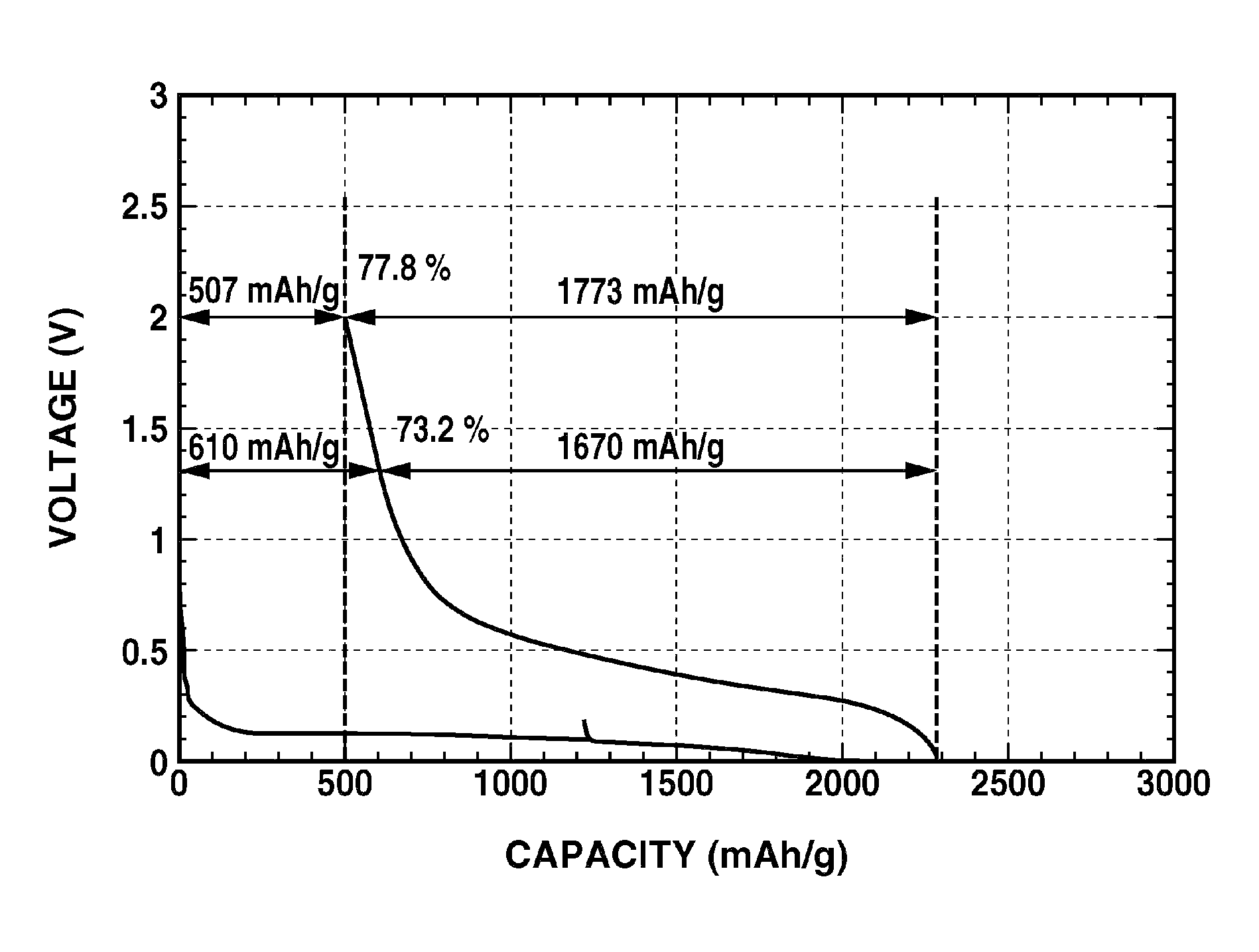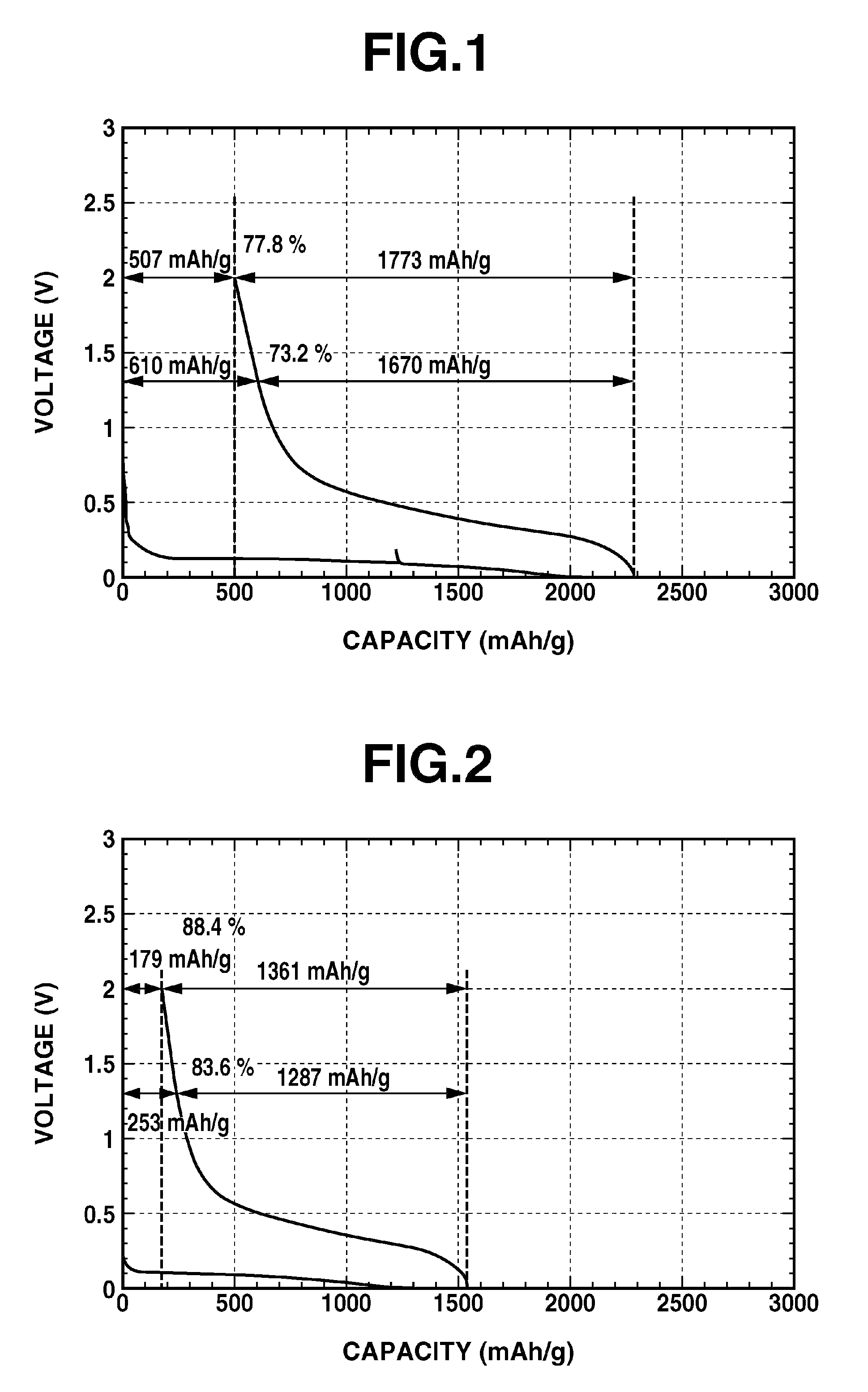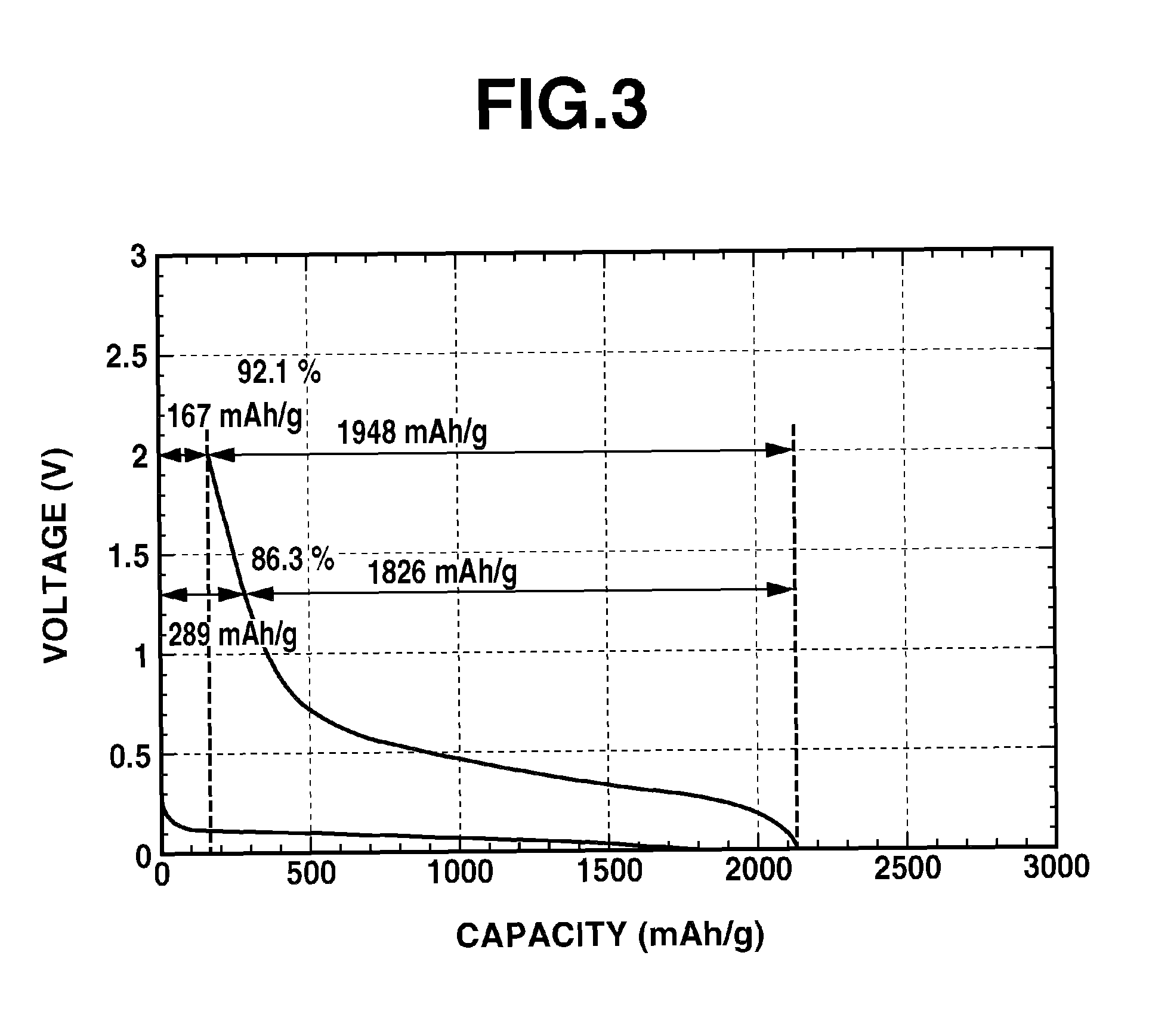Predoping method for lithium, lithium-predoped electrode, and electricity storage device
a technology of lithium-predoped electrodes and electrodes, which is applied in the direction of electrolytic capacitors, cell components, transportation and packaging, etc., can solve the problems of difficult to meet the demand for high energy density, the approach of increasing the capacity of lithium ion batteries by improving the positive electrode oxides and negative electrode carbon-base materials, and the limit has reached. , to achieve the effect of suppressing the impact of cycle performan
- Summary
- Abstract
- Description
- Claims
- Application Information
AI Technical Summary
Benefits of technology
Problems solved by technology
Method used
Image
Examples
preparation example 1
[0088]A slurry was prepared using 92 parts of negative electrode material (KSC-1064 by Shin-Etsu Chemical Co., Ltd.) in the form of silicon oxide: SiOx (x=1.02) having an average particle size of 5 μm coated with 5 wt % carbon, 8 parts of polyvinylidene fluoride (PVDF, HSV900 by Arkema) as binder, and propylene carbonate (PC) as solvent. The slurry was coated onto a copper foil, dried at 120° C. for 10 minutes, and pressed into an electrode having a thickness of 18 μm and a density of 1.17 g / cm3 (excluding copper foil). Using the electrode punched to a diameter of 17 mm, lithium metal as the counter electrode, and a solution of LiPF6 in a solvent mixture of ethylene carbonate and methyl ethyl carbonate in a weight ratio of 3:7, having a concentration of 1 mol / L as the electrolytic solution, doping / dedoping of lithium was electrochemically performed. Specifically, lithium was doped or absorbed by the constant current (400 mA / g relative to the weight of lithium-dopable silicon-base ma...
example 1
Predoping
[0089]In an argon dry box having a moisture content of up to 1 ppm, 0.25 g of the lithium-dopable silicon-base material and 0.31 g of propylene carbonate (b.p. 242° C.) having a water content of up to 30 ppm were added and mixed in a mortar. To the clay-like mixture thus obtained, pieces of about 10 mm squares cut from lithium metal foil of 0.03 mm thick were added in divided portions of each about 0.008 g for incorporation while kneading / mixing was continued. By following the procedure of adding lithium metal after complete disappearance of previous lithium metal, lithium metal was kneaded and mixed in a total amount of 0.05 g (corresponding to 760 mAh / g relative to the weight of lithium-dopable silicon-base material). At the end of kneading / mixing, the lithium metal foil added had completely disappeared. The kneading / mixing time was 55 minutes, indicating that a practically acceptable predope amount affording 760 mAh / g could be achieved within a short time.
[0090]The lithi...
examples 2 to 5
[0095]In an argon dry box having a moisture content of up to 1 ppm, 0.25 g of the lithium-dopable silicon-base material obtained in Example 1 and a solvent as shown in Table 1 were added and mixed in a mortar. To the clay-like mixture thus obtained, pieces of about 10 mm squares cut from lithium metal foil of 0.03 mm thick were added in divided portions of each about 0.008 g for incorporation while kneading / mixing was continued. By following the procedure of adding lithium metal after complete disappearance of previous lithium metal, lithium metal was kneaded and mixed in a total amount of 0.05 g (corresponding to 760 mAh / g relative to the weight of lithium-dopable silicon-base material). At the end of kneading / mixing, the lithium metal foil added had completely disappeared. The kneading / mixing time was 50 to 60 minutes except Example 2. In Example 2 using methyl ethyl carbonate (b.p. 107° C.), the kneading / mixing time was 70 minutes because the operation of supplementing the solven...
PUM
| Property | Measurement | Unit |
|---|---|---|
| boiling point | aaaaa | aaaaa |
| thickness | aaaaa | aaaaa |
| temperature | aaaaa | aaaaa |
Abstract
Description
Claims
Application Information
 Login to View More
Login to View More - R&D
- Intellectual Property
- Life Sciences
- Materials
- Tech Scout
- Unparalleled Data Quality
- Higher Quality Content
- 60% Fewer Hallucinations
Browse by: Latest US Patents, China's latest patents, Technical Efficacy Thesaurus, Application Domain, Technology Topic, Popular Technical Reports.
© 2025 PatSnap. All rights reserved.Legal|Privacy policy|Modern Slavery Act Transparency Statement|Sitemap|About US| Contact US: help@patsnap.com



